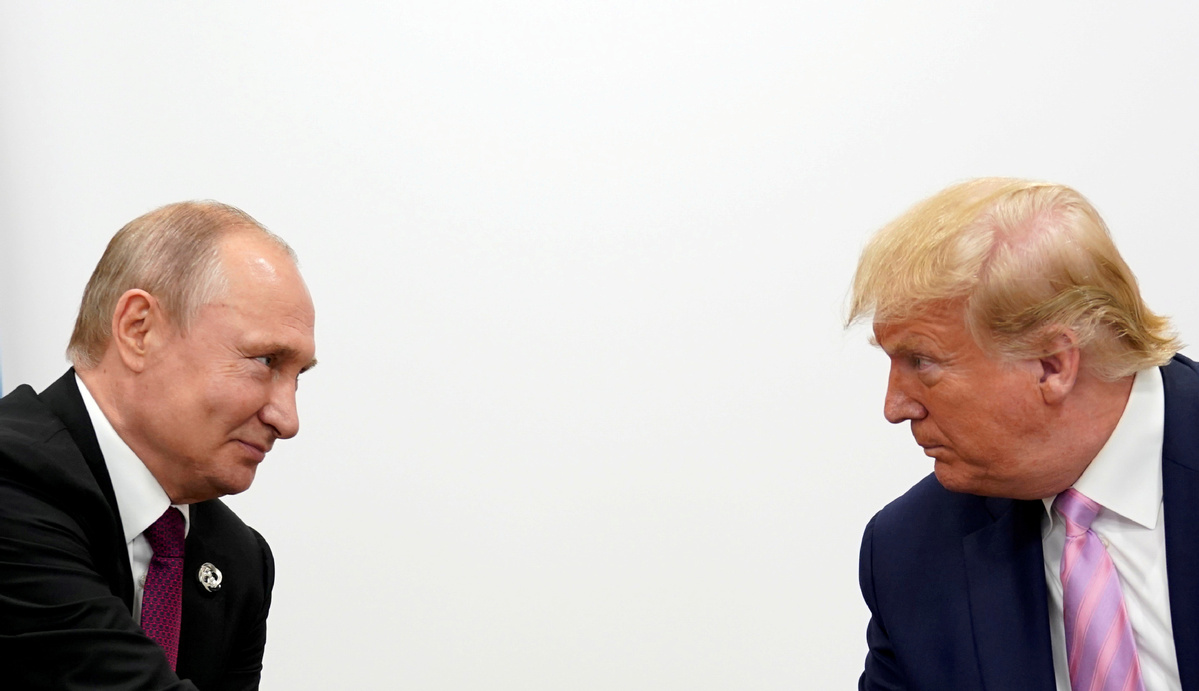US reaches out, but swift nuke deal unlikely


US President Donald Trump has offered an olive branch to his Russian counterpart Vladimir Putin to make the extension of an expiring nuclear deal possible, but a Russian military expert predicted that a new agreement won't be reached this year.
US Ambassador to Russia John Sullivan told the Interfax news service that Trump had sent a message directly to Putin recently, saying he supported Putin's proposal to hold a summit of the five permanent members of the United Nations Security Council to discuss issues of nuclear disarmament.
Putin proposed during a visit to Israel in January that leaders of the main nuclear powers, which have "a special responsibility for the preservation of civilization", should hold a summit this year.
Trump described the initiative as a "good idea" in his message to Putin, Sullivan said.
The United States also plans to restart bilateral arms-control talks soon with Russia, including on the nuclear treaty Measures for the Further Reduction and Limitation of Strategic Offensive Arms, or the New START, that limits the two countries' strategic arsenals and is set to expire next February, Sullivan said.
The 10-year treaty, signed in 2010 between the administrations of Barack Obama and Dmitry Medvedev, has an option to be renewed for a further five years with the nods of both parties.
Also on Wednesday, Russian Foreign Minister Sergey Lavrov and US Secretary of State Mike Pompeo held a phone conversation. They discussed the New START issue as well as the coronavirus pandemic.
The Russian Foreign Ministry said in a statement that the two also talked about the possibility of related cooperation in the context of combating the pandemic, and called for the efforts of all members of the international community in accordance with calls of the UN and other multilateral organizations.
Meanwhile, Lavrov again clearly backed the extension of the New START during the conversation, emphasizing the importance of re-energizing the Russian-US dialogue on arms control and nonproliferation for global strategic stability.
The Trump administration has so far rebuffed Russian calls to begin talks on extending the treaty, which is the last nuclear arms accord between the two powers.
Trump named Marshall Billingslea as special envoy for arms control last month. The position of undersecretary of state for arms control and international security had been vacant for more than six months.
Therefore, both Trump's message to Putin and Lavrov's talk with Pompeo are positive signals that the US may be willing to start the treaty extension talks, Russia's Kommersant business daily said.
"Moscow and Washington don't have many topics and interests in common, but arms control has until recently remained an area where the two sides continued cooperating despite sharp differences on some issues," said Evgeny Buzhinsky, a retired Russian lieutenant general.
Buzhinsky, who had working contacts with Billingslea in the early 2000s, said Billingslea is not a flexible negotiator, and "he is not ready to reach a compromise".
It's unrealistic to expect a new agreement on arms control between the two sides by February, he said.

































